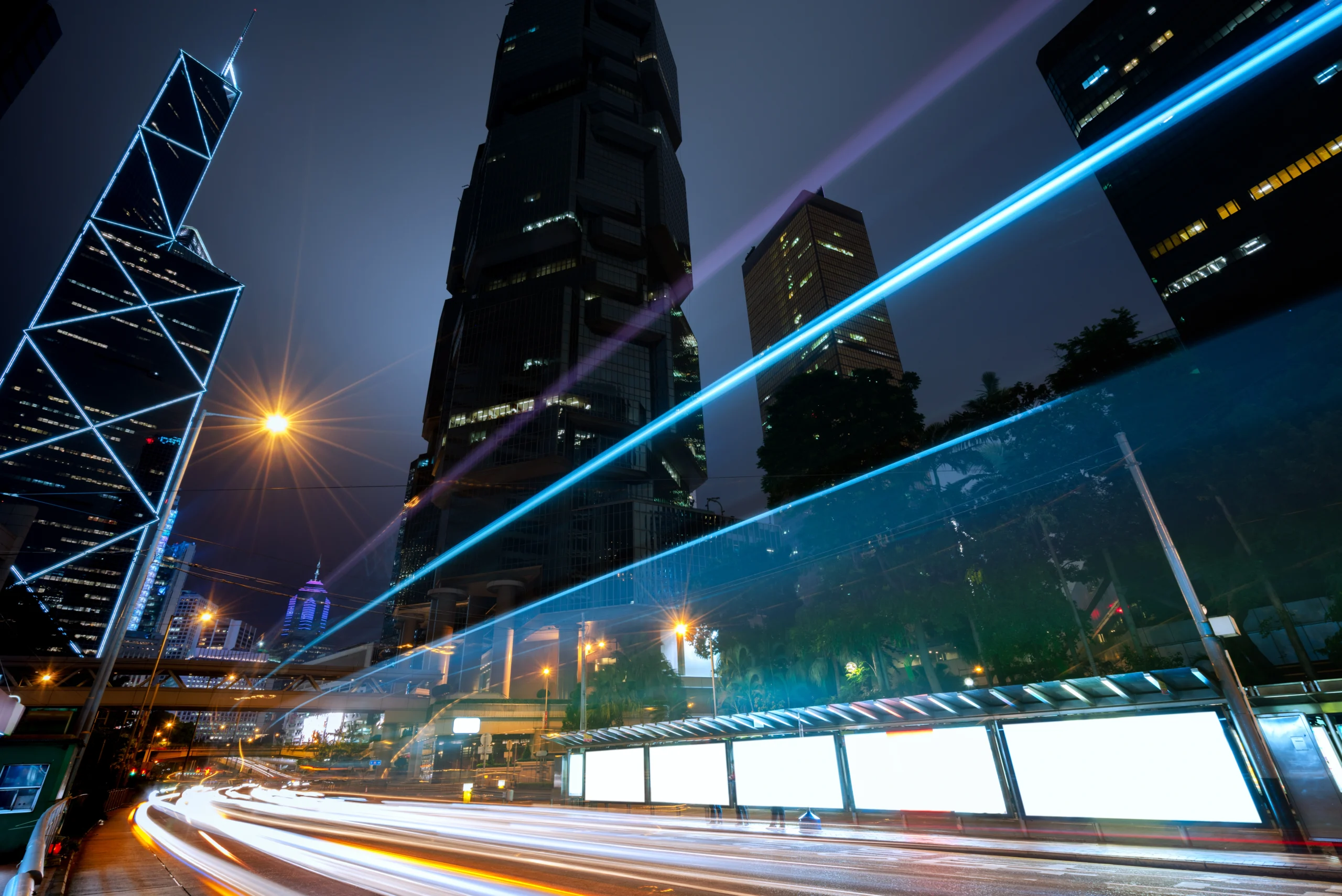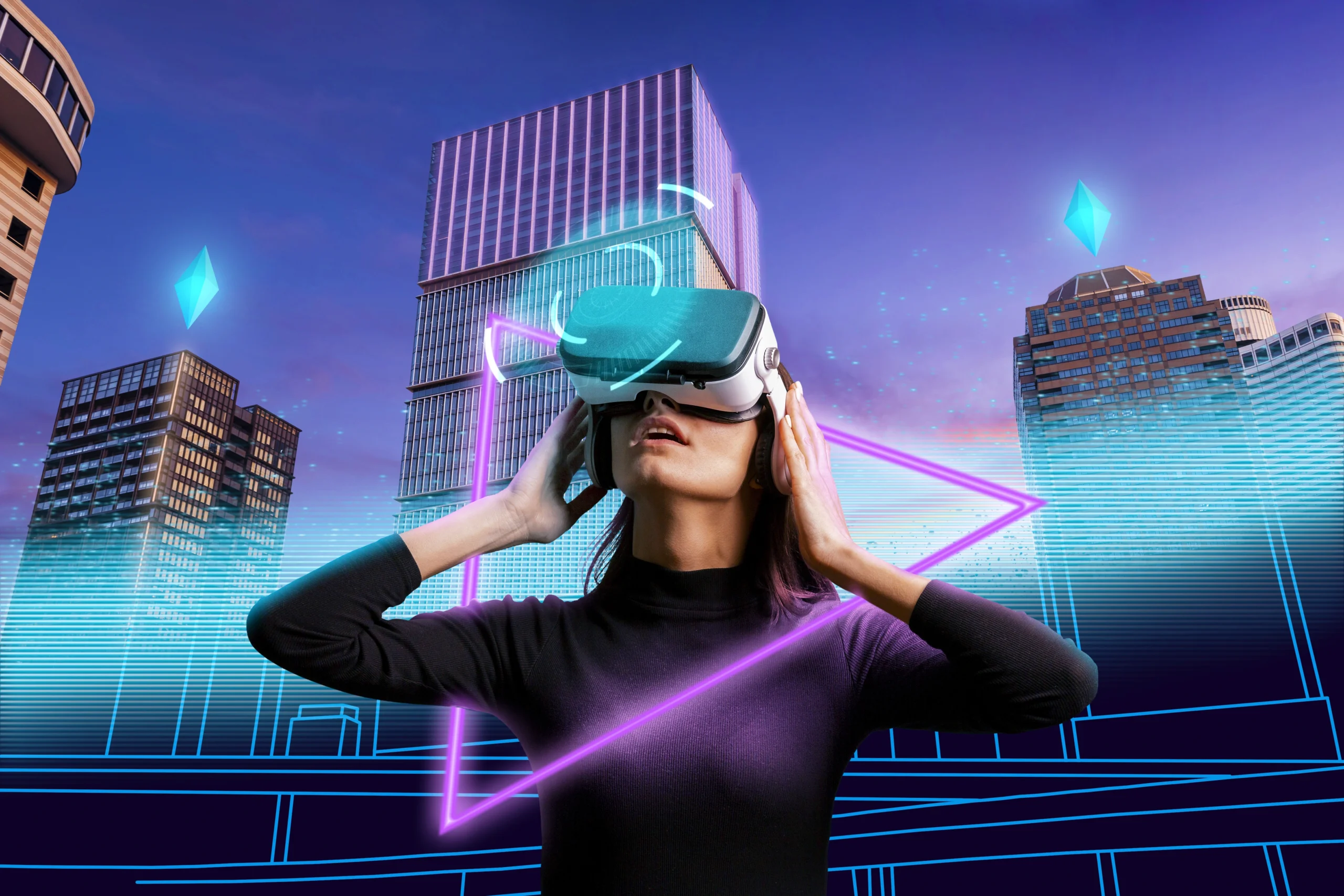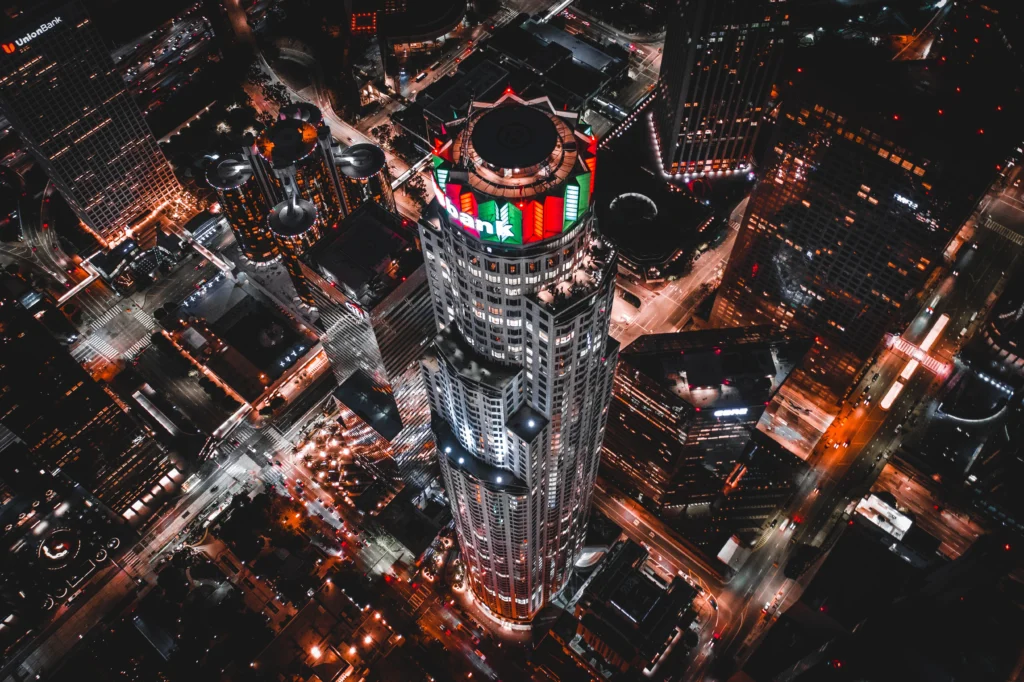Smart Cities, AI & the UAE’s Tech Evolution
By Desk Reporter


As of 2025, the transformation of Dubai into a smart city is no longer a distant ambition; it’s unfolding in real time. Across the emirate, intelligent systems are gradually becoming part of daily life. In modern homes, automated lighting and climate control are increasingly common. Voice assistants help residents manage their routines, while app-based transport services harness real-time data to reduce congestion and wait times. These features, once considered futuristic, are now quietly reshaping the way people live, work, and move.
Looking ahead to 2030, the pace is expected to accelerate. Mornings may begin in fully responsive apartments where room temperatures, lighting, and energy usage adjust automatically to personal habits and preferences. Autonomous shuttles and self-driving taxis, already in trial phases, are set to become a standard part of the urban commute, powered by AI systems that manage traffic flows and optimize routes in real-time. Public infrastructure, from streetlights to waste bins, will increasingly be connected through sensors and data platforms, creating a more efficient, responsive urban environment.
Electric vehicles are also gaining traction, supported by a rapidly expanding smart grid that regulates charging to minimize energy demand during peak hours. Environmental sensors already feed data to government platforms, guiding city planners in real-time to address pollution, heat islands, and emergency response more effectively.
This evolution is not confined to Dubai alone. Across the UAE, from the glittering skyline of Dubai to Abu Dhabi’s dynamic innovation districts, smart city principles are taking root. The goal isn’t just efficiency; it’s quality of life. As one UAE innovation leader described it, the mission is for Dubai to become “the smartest and happiest city in the world… where services are managed through smart and integrated systems… making the lives of citizens, residents and visitors easier and enhancing their happiness.”
Guided by this vision, both emirates are investing heavily in AI, sustainability, and digital infrastructure, turning the UAE into a living laboratory for urban innovation. With national strategies like the UAE AI Strategy 2031 and the Dubai Smart City Agenda, governments and private sectors alike are working to embed intelligence into every layer of society. The result? A future where cities are not only more connected, but also more human, designed to serve, adapt, and inspire.


Smart Dubai and a Happy City
Dubai’s smart city journey began with bold goals: a paperless government, widespread data platforms, and an official “Happiness Agenda.” By 2021, the government had transformed thousands of public services into seamless digital offerings and launched the Dubai Blockchain Strategy and Dubai AI Roadmap to cement innovation into policy. These efforts are framed by the founding vision of Sheikh Mohammed bin Rashid Al Maktoum, to make Dubai “the happiest city on Earth” through technology. For example, the city’s AI Happiness Meter uses real-time feedback to ensure government services make people smile, while smart apps let residents complete all tasks, from paying bills to planning weddings, with a few taps.
Dubai’s 2021 Smart Strategy outlined the path: a “seamless, efficient, safe, and personalized” city. Residents would live in a smart, livable and resilient city, supported by a globally competitive economy and an interconnected society with accessible services. Infrastructure targets even aimed for “0 visits” to the government by providing 100% of services online. Sustainability was likewise baked in: a “clean environment enabled by cutting-edge ICT” was an explicit goal, echoing Dubai’s 2050 clean energy vision.
These plans are more than rhetoric. Already, Dubai has set up massive projects like the Mohammed bin Rashid Al Maktoum Solar Park and a citywide smart grid, slashing emissions even as the population grows. A new Dubai Digital Authority now coordinates data and cloud infrastructure across agencies, aiming to double the emirate’s digital economy to over AED 200 billion in a few years, “making Dubai the smartest and happiest city in the world,” as the head of Dubai’s utilities put it. The emirate’s AI strategy for 2031 explicitly targets integration across healthcare, transport, education, and government, preparing the city for the next phase of growth.
Dubai is already experimenting with futuristic urban mobility. In July 2025, Dubai’s RTA signed an MoU with Pony.ai , a Chinese-American self-driving firm , to begin public trials of autonomous taxis. By 2030, the plan is for one-quarter of all city trips to be handled by driverless vehicles. RTA CEO Mattar Al Tayer said these partnerships “support our ambition to lead globally in smart, efficient, and sustainable transport,” improving first-and last-mile connectivity and safety. On the roads, AI manages traffic flow; at stations, cameras and analytics smooth crowd movements; on the curb, electric pod cars quietly buzz. These innovations build on the dozen AI projects Dubai revealed at its “Smart Commute” expo, from AI maintenance of cycling lanes to bus-network optimization.
Behind the scenes, Dubai’s data brains crunch city metrics. In 2025, the federal government rolled out a Proactive Government Performance System, an AI tool that processes millions of data points to predict how well each department meets its goals. Sheikh Mohammed hailed it as enhancing the government’s ability to “anticipate future challenges and opportunities”. Likewise, Dubai is building a national AI lab and advisory board to ensure data is used responsibly; its Ethical AI Toolkit guides vendors and officials on fair algorithms. In short, Dubai’s authorities see AI not as a gadget but as the operating system of the city, directing traffic, smoothing government services, and even nudging residents toward greener, happier lifestyles.
Abu Dhabi’s Innovation Engine
Dubai’s digital dazzle often makes headlines, but in Abu Dhabi, a quiet revolution is underway. The capital’s leaders have invested heavily in AI and startups, aiming to pivot from oil to high-tech. Abu Dhabi’s Government Digital Strategy 2025-2027 explicitly commits the emirate to becoming “the world’s first fully AI-native government across all digital services by 2027”. An AED13 billion budget will build cloud infrastructure, automate all government processes, and train citizens in AI. As H.E. Ahmed Al Kuttab, chairman of Abu Dhabi’s digital agency, explained: “By incorporating AI, cloud technologies and data-driven insights into our government’s DNA, we will transform public service delivery, optimize government operations, and drive sustainable economic growth”. In practice, that means citizens in Abu Dhabi increasingly interact with AI: for instance an “AI Lab” is open to every government department to prototype new solutions, while algorithms help manage traffic, utility grids and even visa processing.
Abu Dhabi is also building the knowledge ecosystem to sustain this future. Leading the charge are institutions like the Mohamed bin Zayed University of AI (MBZUAI), the world’s first graduate-level AI university, and the new Technology Innovation Institute for R&D. And crucially, Hub71 has become Abu Dhabi’s global tech hub. Launched in partnership with Mubadala, Hub71 provides startups with funding, office space, and access to government and industry partners. In late 2024, it unveiled Hub71+ AI, a dedicated arm for next-generation AI startups, backed by heavyweights like Nvidia, AWS, and sovereign AI firm Core42. “AI is transforming industries. Abu Dhabi is not just keeping pace but setting the standard as a global leader in advancing AI for meaningful impact,” says Hub71 CEO Ahmad Alwan.
The numbers illustrate this momentum: a 2020 analysis noted that Hub71 added 36 new startups in one year, spanning fintech, AI, aerospace, and mobility. Meanwhile, Abu Dhabi incubators like DTEC and in-house programs have fostered hundreds of tech ventures. A UNESCO review applauded the UAE’s strategy as producing “numerous initiatives… aimed at creating opportunities for technological businesses… across all sectors”. Abu Dhabi’s Vision 2030 economic plan, too, explicitly calls for a “smart city” infrastructure complete with world-class transport and digital services. The city of Masdar, already famous as a prototype eco-city, continues evolving with new AI-driven energy projects.
In short, Abu Dhabi is laying the tracks for a knowledge economy. By tying AI into its cultural and economic plans, the emirate expects to diversify away from oil. For example, DEWA (Dubai’s utilities) has begun using AI for grid optimization and customer service, part of broader Gulf efforts to apply machine learning to power and water. Even Abu Dhabi’s weather forecasts and disaster response are embracing AI., A recent storm in 2024 prompted officials to say that next time, “we will be better prepared to leverage technology… to help forecast better and ensure people have less inconvenience,”.
Governing with AI and Data
Both emirates recognize that the real breakthrough isn’t machines taking over tasks, but governments and societies evolving with them. The UAE has made AI and data cornerstones of its national strategy. In 2017, it appointed the world’s first Minister of Artificial Intelligence, H.E. Omar Sultan Al Olama, and launched its National AI Strategy 2031. That strategy envisions the UAE among the world’s top AI nations by 2031, embedding AI across sectors from health to transport. Already, federal planning has become proactive: last year, Sheikh Mohammed bin Rashid announced a new 2031 strategic planning cycle that “prioritizes artificial intelligence in government planning, process simplification, resource optimization, and enhanced financial efficiency. In his words, whereas past government strength was measured by “comprehensive procedures,” success now depends on “regulatory agility, streamlined processes, and intelligent resource management”.
This shift is visible in policy: all key UAE strategies now reference AI and data. The We the UAE 2031 Vision, which charts the nation’s human development goals for the next decade, explicitly calls for smart urban services and a data-driven economy. The federal “Data First” initiative is building a central data portal to power AI research. And Dubai’s own Dubai AI Roadmap pulls together dozens of departmental AI pilots into a coordinated citywide push. As Omar Al Olama succinctly put it, “Whoever is going to lead in the AI race will lead the future. This technology will change the world”, a credo that underpins these projects.
The UAE is also exporting its governance model. Its Government Experience Exchange Programme shares best practices on digital transformation with international partners, and UAE officials routinely speak on AI at UN and Davos panels. Indeed, the Emirates’ approach has earned recognition: a 2025 BCG report described the UAE as “a beacon of advanced leadership and execution in AI” in the Gulf. BCG partners noted that the country’s mature digital infrastructure and clear national initiatives put it “poised to be a regional leader… among global AI pioneers”. In their view, continued growth will hinge on more R&D, private-sector engagement, and homegrown talent, all areas the UAE is already investing in.


The Mobility Revolution
Walking or driving across Dubai or Abu Dhabi today, one might see few tangible differences. But under the skin, an AI-driven mobility revolution is underway. Aside from the Pony.ai trial, Dubai’s Roads & Transport Authority (RTA) has launched Bus Drivers Support Centres that use speech and data analysis to keep drivers and dispatchers connected, and AI-powered tools to predict electricity and water needs for the metro. Camera-equipped buses monitor both driver safety and passenger flow; cyclists report potholes via a WhatsApp bot; LiDAR-equipped crews map road conditions and schedule repairs. Even Dubai’s license-plate auctions use an AI model to forecast revenues. All these services align with the RTA’s AI Strategy 2030, which now embraces 81 AI projects aimed at “transforming Dubai into a global leader in AI-driven mobility and improving residents’ quality of life”.
The vision extends beyond roads. Dubai is piloting flying taxis, drone deliveries, and even underground hyperloop tunnels. Abu Dhabi, too, plans autonomous shuttles in its suburbs and has tested electric robo-taxis. Electric vehicle infrastructure is growing quickly: Dubai’s Roads & Transport Authority reports that EV charging stations now number in the thousands, powered by renewable-sourced electricity. Meanwhile, AI applications manage traffic lights and optimize public transport schedules, reducing congestion and cutting carbon emissions. In practice, commuters in 2030 may hop between metro, autonomous pod, and bus without noticing, because AI is quietly coordinating schedules and rerouting services in real-time.
“These expansions of partnerships with leading global firms… support our ambition to lead globally in smart, efficient and sustainable transport,” noted Mattar Al Tayer at the Pony.ai announcement. His words underscore the new reality: mobility is no longer just about cars, but about a network of options seamlessly connected by data. The outcome is more than convenience, it is a more liveable, greener city.
Sustainability and Quality of Life
Behind the smart-city sheen lies the Emirates’ grand challenge: making growth sustainable. Visionary UAE leaders insist that economic development must go hand-in-hand with environmental stewardship. As DEWA CEO Saeed Al Tayer emphasizes, the UAE model “integrates economic and social development with sustainability and environmental protection”. Practical steps include Dubai’s Clean Energy Strategy 2050 (100% clean energy by 2050) and Abu Dhabi’s push for a circular economy. Big infrastructure projects reflect this: from the world’s largest solar park to emerging green hydrogen facilities, the Emirates are betting on tech to decarbonize. At COP28 in Dubai (2023), the UAE championed global cooperation on climate, and now companies like DEWA routinely highlight how AI and digitalization can slash waste and boost efficiency (for example, smart meters and predictive grid management).
At the human level, the smart city’s goal is a higher quality of life. “Our primary goal is happiness,” Dubai’s leadership reminds us. To that end, cities are being designed around people. Smart urban planning means more parks and bike lanes, and even cooler microclimates: Masdar City (Abu Dhabi’s solar-powered enclave) stays 10–15°C cooler at ground level thanks to intelligent design. Public services are also tailored. Abu Dhabi’s Health Smart Card links patient records across hospitals, enabling AI diagnostics and fewer clinic visits. Schools are adopting AI tutors and personalized learning. Factories and offices deploy smart-building systems that optimize energy and comfort. Even policing and security use AI to keep cities safe while respecting privacy.
Digital governance plays a part too: mobile apps like UAE PASS give residents single sign-on to all government services, reducing paperwork. Blockchain is used for transparent transactions (for example, Dubai has tokenized some land registry entries). And data-driven dashboards let city officials track everything from emergency response times to school performance. In a future Emirati city, the phrase “normal day” might mean unseen systems constantly adjusting in the background, elevators that anticipate your arrival, city buses that slow their pace if sensors detect a car accident ahead, and neighborhood drones delivering groceries on schedule.
The UAE of 2050 and Beyond
The UAE’s leaders speak of foresight, not fear. They acknowledge that AI brings challenges (job displacement, privacy) but argue that proactive policy can harness the benefits. As Omar Al Olama warns, neglecting AI means falling behind, “we’re determined not to make the mistakes of history,” he says. In practice, the Emirates are already training tens of thousands of civil servants and students in AI skills, and have even built national large-language models. They see the next decades not as risky, but as an opportunity to leapfrog.
Indeed, global think-tanks are watching. A 2025 Boston Consulting Group report noted that UAE firms are among the fastest adopters of AI in the Gulf, driven by massive cloud investments and high tech literacy. In this accelerating environment, the UAE’s blend of clear strategy and deep pockets puts it in the regional lead. Yet leaders insist the measure of success is people’s well-being. “As we look to the future, our focus must remain on fostering inclusive partnerships and expanding technological capacities… so that technology significantly enhances the lives of individuals and communities worldwide,” Deputy Minister Abdulla Lootah told an international forum.
What will that future feel like? For the working professional, it could mean virtual conferences with colleagues on other continents, AI assistants handling routine tasks, and offices that flex to a four-day week powered by automation. For the everyday family, it might mean safer streets and cleaner air. Dubai recently boasted a drop in emissions and traffic accidents as smart traffic lights and vehicle electrification took hold. And for the city itself, it means becoming a testbed for the global tech frontier. The UAE is opening its doors to major initiatives: Microsoft’s $1.5 billion partnership with Abu Dhabi’s G42 AI firm, for instance, ties the country firmly into the world’s AI innovation ecosystem.
Ultimately, the UAE’s smart cities ambition is about preparing for the unexpected. Sheikh Mohammed encapsulates this ethos: constantly iterating and always innovating. Already, he has tasked ministries to build flexible strategies “incorporating AI and future technology solutions” to accelerate national goals. In a vision that stretches to 2071 (the UAE’s centennial), technology is the lever to lift society to new heights.
In the end, whether it is in the high-tech corridors of Hub71, the solar farms of Dubai, or the code labs training the next generation of coders, one principle guides the Emirates: technology serves people. By weaving AI into cities and governance, always with an eye on ethics and sustainability, the UAE is trying to create a future city that lives up to its desert legacy: resilient, innovative, and thriving.



